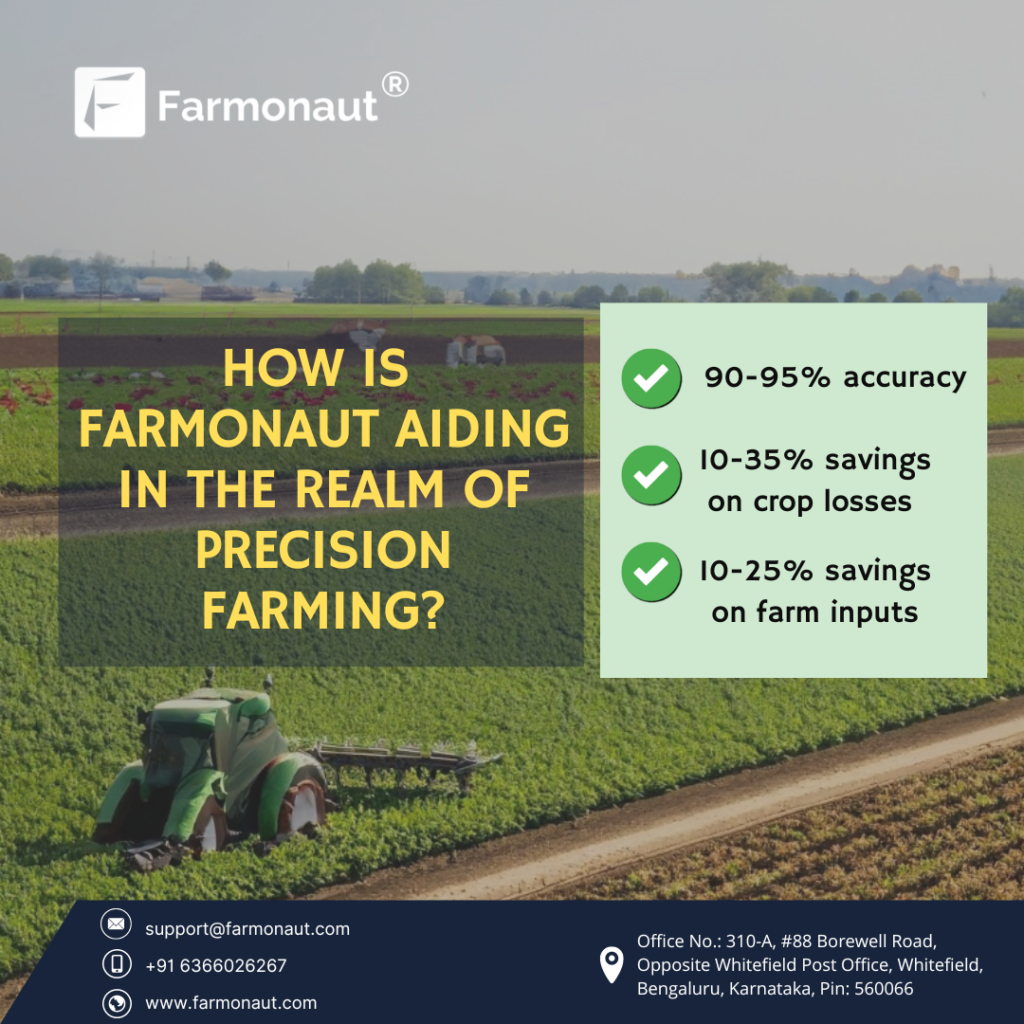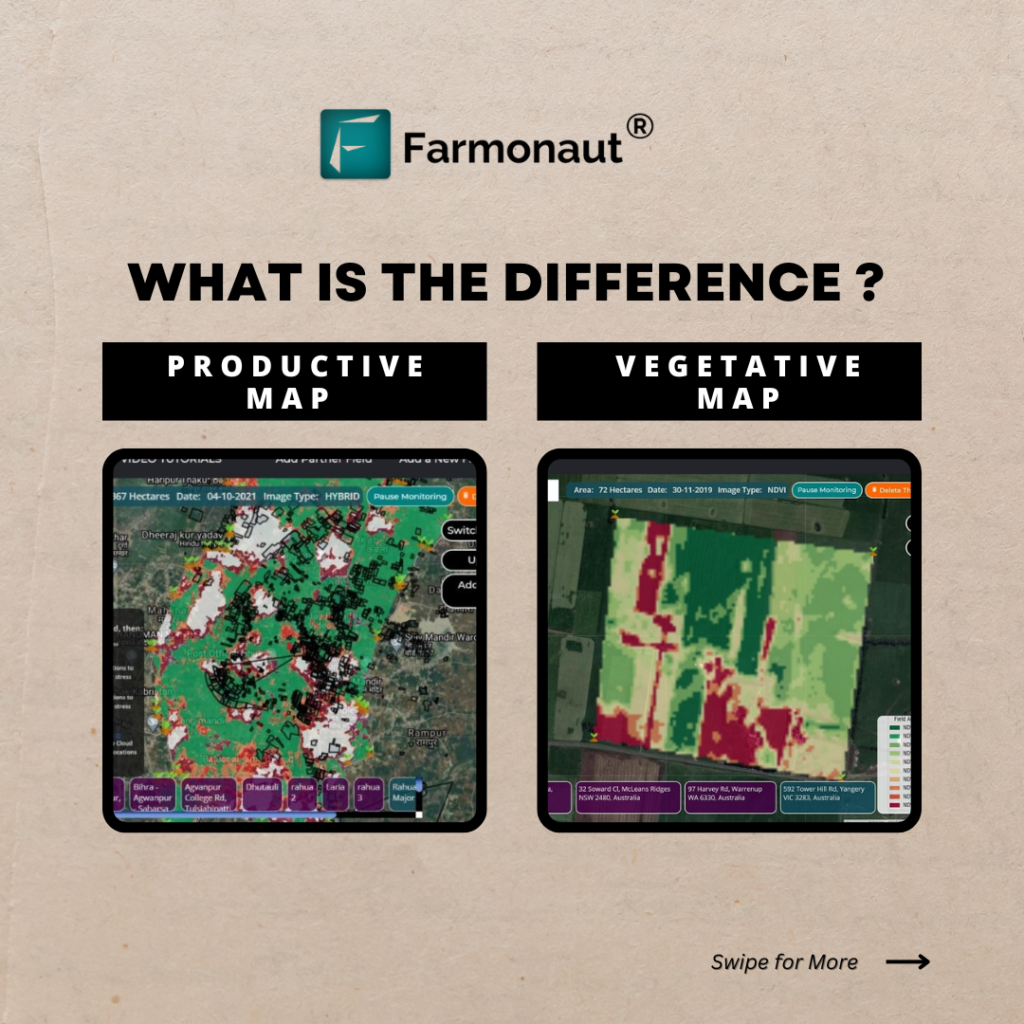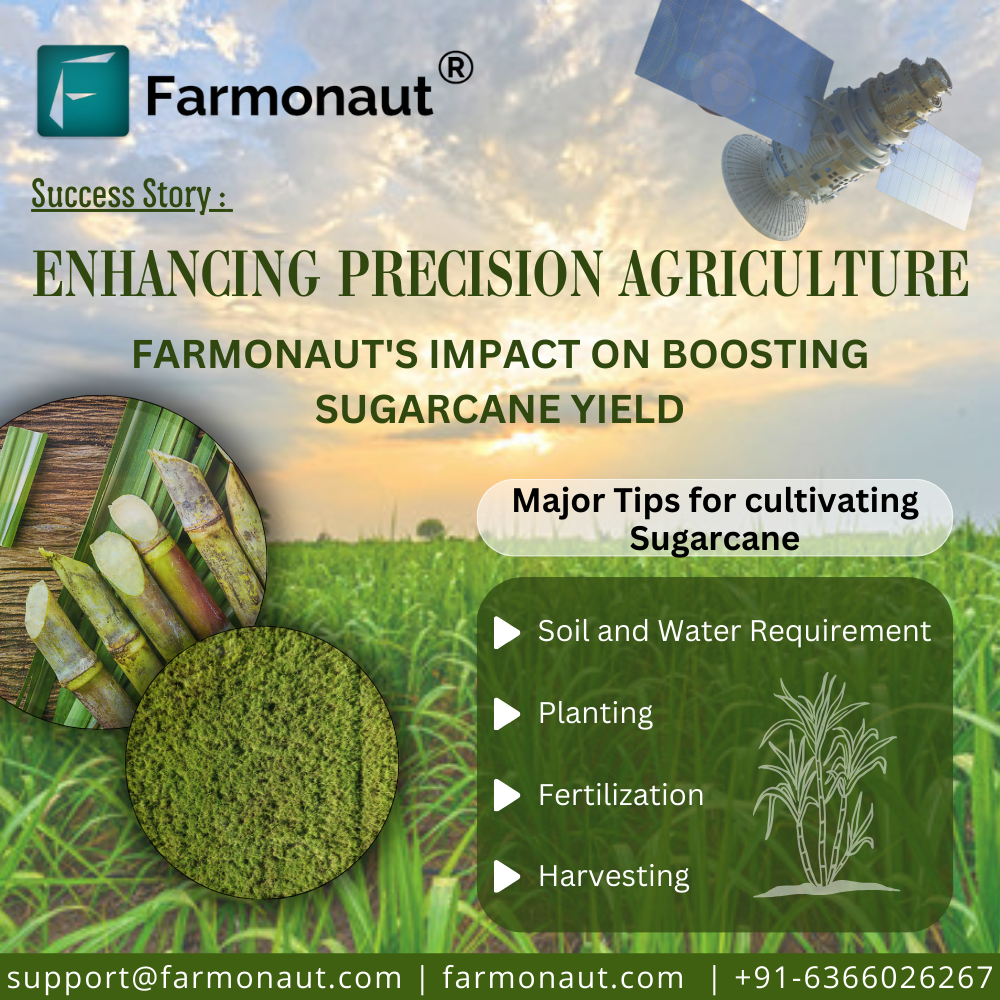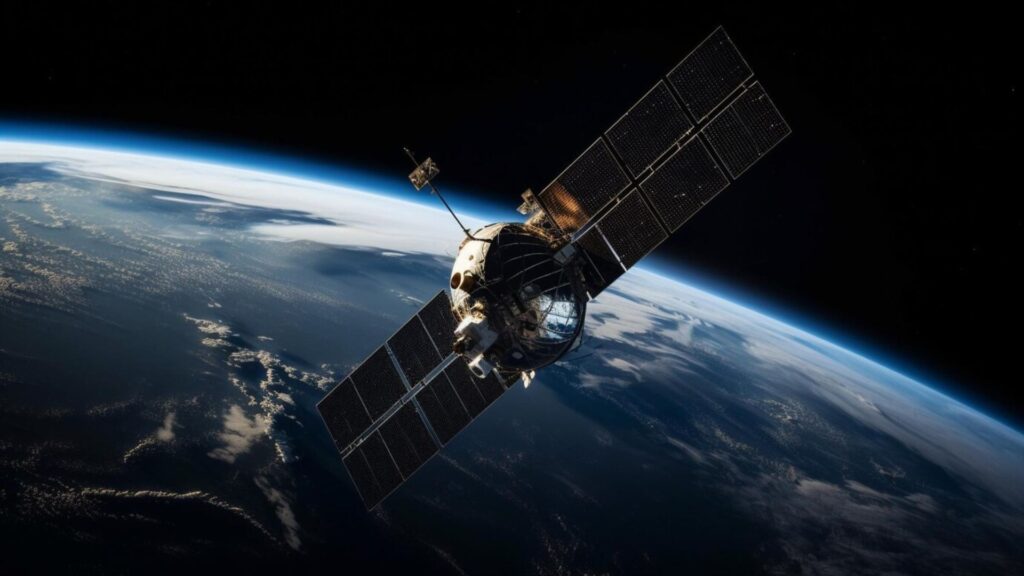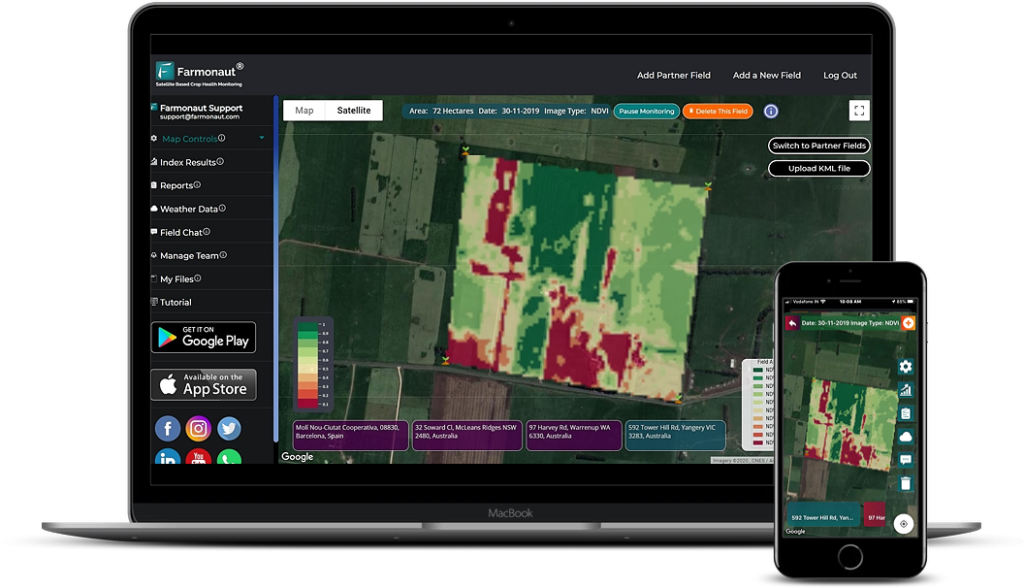
Optimizing Crop Performance: Advanced Field Management Strategies for Precision Farming
In today’s rapidly evolving agricultural landscape, optimizing crop performance has become more critical than ever. As we face challenges such as climate change, resource scarcity, and increasing global food demand, farmers and agronomists are turning to advanced field management strategies and precision farming techniques to maximize yields, reduce costs, and promote sustainability. In this comprehensive guide, we’ll explore the cutting-edge tools, technologies, and practices that are revolutionizing the way we approach field management and crop production.
The Importance of Data-Driven Agriculture
At the heart of modern field management lies the power of data. By leveraging accurate, real-time information about our fields, crops, and environmental conditions, we can make more informed decisions and implement targeted strategies to optimize crop performance. Let’s delve into the key components of data-driven agriculture:
1. Collecting Field Data
Accurate data collection is the foundation of precision farming. Today’s farmers have access to a wide array of tools and technologies to gather crucial information about their fields:
- Satellite Imagery: High-resolution satellite images provide a bird’s-eye view of crop health, allowing us to identify problem areas quickly and efficiently.
- Drone Technology: Unmanned aerial vehicles (UAVs) equipped with multispectral cameras can capture detailed imagery of crop conditions, helping to detect issues such as pest infestations or nutrient deficiencies.
- Soil Sensors: In-field sensors measure various soil properties, including moisture content, temperature, and nutrient levels, providing valuable insights for irrigation and fertilization decisions.
- Weather Stations: On-farm weather stations collect localized climate data, enabling more accurate predictions and better-informed management decisions.
By combining these data sources, we can create a comprehensive picture of our fields and crops, forming the basis for targeted management strategies.
2. Data Analysis and Visualization
Once we’ve collected field data, the next step is to analyze and interpret this information to derive actionable insights. Advanced data analysis tools and visualization techniques help us make sense of complex datasets:
- GIS Software: Geographic Information Systems allow us to create detailed maps of our fields, overlaying various data layers to identify patterns and relationships.
- Machine Learning Algorithms: AI-powered algorithms can process vast amounts of data to identify trends, predict outcomes, and generate management recommendations.
- Data Dashboards: User-friendly interfaces present key metrics and insights in an easily digestible format, enabling quick decision-making.
By leveraging these analytical tools, we can transform raw data into valuable insights that inform our field management strategies.
Advanced Field Management Strategies
Armed with accurate data and powerful analysis tools, we can implement a range of advanced field management strategies to optimize crop performance:
1. Precision Soil Management
Understanding and managing soil fertility is crucial for maximizing crop yields. Advanced soil management techniques include:
- Variable Rate Fertilization: By creating detailed soil fertility maps, we can apply fertilizers at variable rates across the field, ensuring each area receives the optimal amount of nutrients.
- Targeted Soil Amendments: Precision application of lime, gypsum, or other soil amendments can help address specific soil quality issues in different parts of the field.
- Cover Crop Strategies: Using data on soil health and field conditions, we can develop tailored cover crop plans to improve soil structure, reduce erosion, and enhance nutrient cycling.
2. Optimized Planting Strategies
Precision planting techniques can significantly impact crop performance:
- Variable Rate Seeding: By adjusting seeding rates based on soil type, topography, and historical yield data, we can optimize plant populations across the field.
- Precision Seed Placement: Advanced planters equipped with GPS guidance systems ensure accurate seed spacing and depth, promoting even emergence and stand establishment.
- Hybrid Selection: Data-driven decision support tools help us choose the best-performing crop varieties for specific field conditions and management practices.
3. Integrated Pest Management (IPM)
Modern IPM strategies leverage technology to minimize pesticide use while effectively managing pests and diseases:
- Remote Sensing for Early Detection: Satellite and drone imagery can help identify pest or disease outbreaks before they become visible to the naked eye.
- Predictive Modeling: By combining weather data, crop growth stage information, and pest life cycle models, we can predict potential pest outbreaks and take preventive action.
- Precision Application: Variable rate sprayers allow for targeted pesticide application, reducing overall chemical use and minimizing environmental impact.
4. Smart Irrigation Management
Efficient water use is critical for sustainable agriculture. Advanced irrigation management techniques include:
- Soil Moisture Monitoring: Networks of soil moisture sensors provide real-time data on water availability, enabling precise irrigation scheduling.
- Weather-Based Irrigation: By integrating local weather forecasts and evapotranspiration data, we can adjust irrigation plans to match crop water needs.
- Variable Rate Irrigation: Advanced irrigation systems can apply water at variable rates across the field, accounting for differences in soil type, topography, and crop water requirements.
Leveraging Technology for Field Management
To implement these advanced field management strategies effectively, farmers and agronomists are turning to a range of cutting-edge technologies:
1. Farm Management Software
Comprehensive farm management platforms integrate data from various sources, providing a centralized hub for decision-making:
- Data Aggregation: These platforms collect and organize data from multiple sources, including field sensors, machinery, and external databases.
- Record Keeping: Digital tools streamline the process of maintaining detailed field records, from planting dates to input applications.
- Reporting and Analytics: Advanced reporting features help identify trends, benchmark performance, and generate insights for continuous improvement.
2. Precision Agriculture Equipment
Modern farm machinery is equipped with advanced technologies to support precision farming practices:
- GPS Guidance Systems: Automated steering and guidance systems ensure accurate field operations, reducing overlap and improving efficiency.
- Variable Rate Controllers: These devices allow for precise control of input application rates, enabling site-specific management practices.
- Yield Monitors: Combine-mounted sensors measure and map crop yields in real-time, providing valuable data for future management decisions.
3. Internet of Things (IoT) in Agriculture
The growing network of connected devices is transforming field management:
- Remote Monitoring: IoT sensors enable real-time monitoring of field conditions, equipment performance, and crop health.
- Automated Systems: Smart irrigation controllers and climate control systems can automatically adjust based on sensor data and predefined parameters.
- Data Integration: IoT platforms facilitate seamless data sharing between different devices and systems, creating a more connected farm ecosystem.
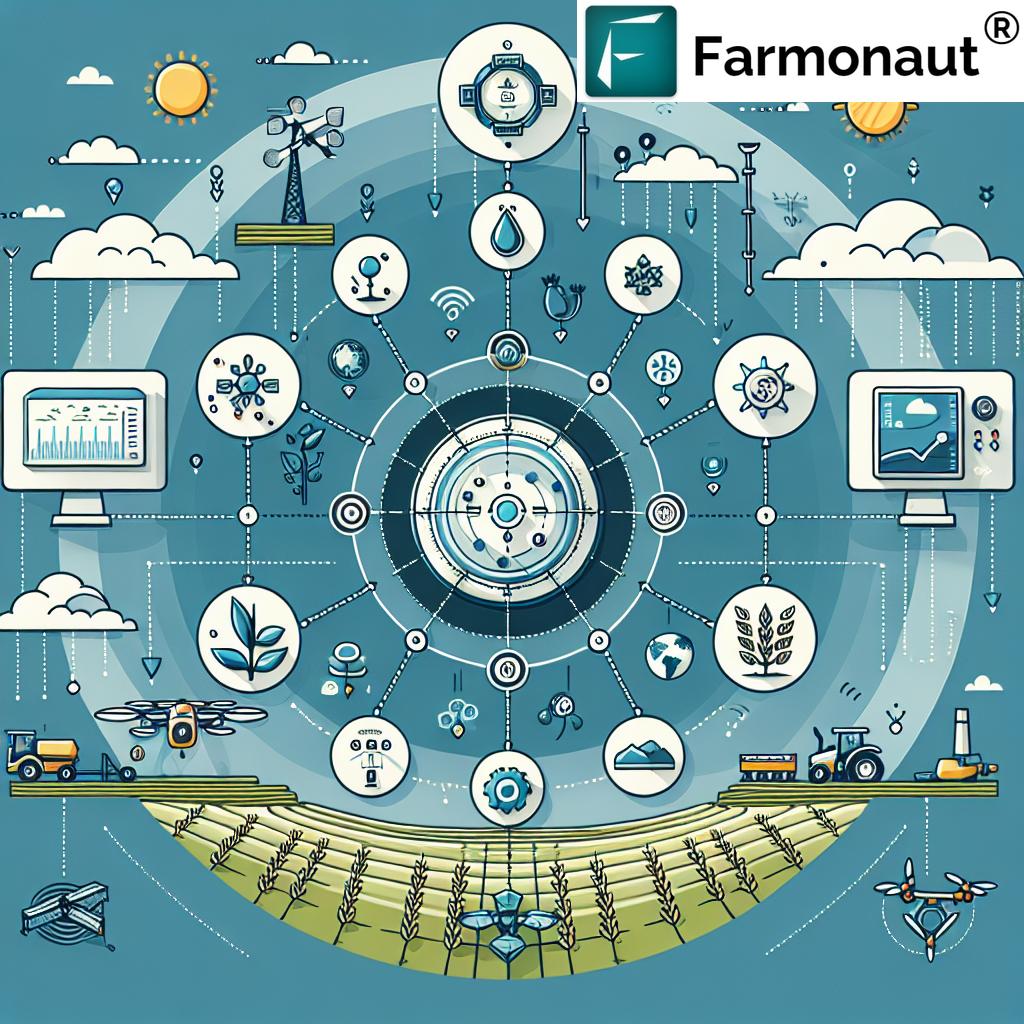
The Role of Farmonaut in Advanced Field Management
At Farmonaut, we’re committed to making advanced field management strategies accessible to farmers of all scales. Our satellite-based farm management solutions integrate cutting-edge technology with user-friendly interfaces, empowering farmers to make data-driven decisions and optimize their crop performance.
Here’s how Farmonaut’s technologies support advanced field management:
- Satellite-Based Crop Health Monitoring: Our platform leverages multispectral satellite imagery to provide real-time insights into crop health, helping farmers identify and address issues promptly.
- AI-Powered Advisory System: The Jeevn AI advisory tool analyzes satellite data and other inputs to deliver personalized recommendations for crop management, optimizing resource use and improving productivity.
- Weather Integration: By incorporating accurate weather forecasts and historical climate data, Farmonaut helps farmers make informed decisions about planting, irrigation, and other field operations.
- Field Boundary Mapping: Our platform allows for precise field boundary delineation, enabling accurate area calculations and targeted management practices.
- Data Visualization and Analysis: Farmonaut’s user-friendly interface presents complex field data in easily interpretable maps and charts, facilitating quick decision-making.
To experience the power of Farmonaut’s advanced field management tools, visit our web application or download our mobile app for Android or iOS.
Comparing Traditional Methods with Farmonaut’s Satellite System
| Field Management Aspect | Traditional Method | Farmonaut Satellite System |
|---|---|---|
| Data Collection | Manual scouting, time-consuming and labor-intensive | Automated satellite imagery collection, frequent and comprehensive |
| Soil Analysis | Periodic soil sampling, limited spatial resolution | Continuous monitoring through multispectral imagery, high spatial resolution |
| Crop Health Monitoring | Visual inspection, subjective and time-consuming | AI-powered analysis of satellite imagery, objective and rapid |
| Yield Prediction | Based on historical data and subjective assessment | Advanced modeling using real-time crop health data and machine learning |
| Weather Integration | Reliance on regional forecasts, limited accuracy | Field-specific weather data and forecasts integrated with crop models |
| Precision Application | Uniform application of inputs across fields | Variable rate prescriptions based on satellite-derived field variability maps |
This comparison highlights the significant advantages of Farmonaut’s satellite-based system in enabling more precise, data-driven field management practices.
Implementing Advanced Field Management Strategies
While the technologies and strategies we’ve discussed offer immense potential for optimizing crop performance, successful implementation requires careful planning and execution. Here are some key considerations for farmers looking to adopt advanced field management practices:
1. Start with a Solid Foundation
Before diving into advanced technologies, ensure you have a strong grasp of basic agronomic principles and field management practices. This foundation will help you better interpret and apply the insights gained from precision farming tools.
2. Prioritize Data Quality
The effectiveness of data-driven decision-making relies heavily on the quality of the input data. Invest in reliable data collection tools and establish protocols to ensure consistent, accurate data gathering across your operation.
3. Develop a Comprehensive Field Management Plan
Create a detailed plan that outlines your field management goals, the strategies you’ll employ to achieve them, and the technologies you’ll leverage. This plan should be flexible enough to adapt to changing conditions and new insights.
4. Invest in Training and Education
As you adopt new technologies and practices, prioritize ongoing education for yourself and your team. Stay informed about the latest advancements in precision agriculture and participate in workshops or training sessions to maximize the benefits of your investments.
5. Start Small and Scale Up
If you’re new to advanced field management techniques, consider starting with a pilot project on a portion of your farm. This approach allows you to gain experience, evaluate the benefits, and refine your strategies before scaling up to your entire operation.
6. Collaborate with Experts
Don’t hesitate to seek guidance from agronomists, precision agriculture specialists, and other experts in the field. Their insights can help you navigate challenges and optimize your field management strategies.
7. Regularly Evaluate and Adjust
Advanced field management is an iterative process. Continuously monitor the results of your strategies, analyze the data, and be prepared to make adjustments as needed to improve outcomes.
The Future of Field Management
As technology continues to evolve, the future of field management looks increasingly sophisticated and data-driven. Some emerging trends to watch include:
- Artificial Intelligence and Machine Learning: These technologies will play an even larger role in analyzing complex datasets and generating predictive insights for field management.
- Autonomous Farm Equipment: Self-driving tractors and other autonomous machines will enable more precise and efficient field operations.
- Advanced Sensors and IoT Integration: The proliferation of low-cost, high-performance sensors will provide even more granular data on field conditions and crop health.
- Blockchain for Traceability: Distributed ledger technologies will enhance transparency and traceability in agricultural supply chains, potentially influencing field management practices.
- Climate-Smart Agriculture: As climate change impacts become more pronounced, field management strategies will increasingly focus on resilience and adaptation to changing environmental conditions.
At Farmonaut, we’re committed to staying at the forefront of these technological advancements, continually enhancing our platform to provide farmers with the most cutting-edge tools for optimizing crop performance.
Conclusion
Advanced field management strategies, powered by precision farming technologies and data-driven insights, offer tremendous potential for optimizing crop performance, increasing yields, and promoting sustainable agriculture. By leveraging tools like satellite imagery, IoT sensors, and AI-powered analytics, farmers can make more informed decisions, implement targeted management practices, and adapt quickly to changing conditions.
As we’ve explored in this comprehensive guide, the key to success lies in integrating these advanced technologies with sound agronomic principles and a commitment to continuous improvement. Whether you’re just beginning to explore precision farming or looking to enhance your existing practices, platforms like Farmonaut offer accessible, powerful solutions to support your field management goals.
We encourage you to explore the possibilities of advanced field management and consider how these strategies can benefit your operation. To learn more about how Farmonaut can support your precision farming journey, visit our website or reach out to our team of experts.
Together, we can cultivate a more productive, sustainable, and resilient agricultural future.
FAQs
-
Q: What is precision agriculture, and how does it relate to advanced field management?
A: Precision agriculture is an approach to farm management that uses information technology and data-driven insights to optimize crop production. It’s closely related to advanced field management, as both aim to improve efficiency, increase yields, and reduce environmental impact through targeted, site-specific practices.
-
Q: How does satellite imagery contribute to field management?
A: Satellite imagery provides valuable information about crop health, soil moisture, and field conditions across large areas. This data helps farmers identify problems early, make informed decisions about input application, and monitor crop progress throughout the growing season.
-
Q: What are the benefits of variable rate technology in field management?
A: Variable rate technology allows for precise application of inputs (such as seeds, fertilizers, and pesticides) based on specific field conditions. This can lead to improved resource use efficiency, reduced input costs, and optimized crop performance across heterogeneous field conditions.
-
Q: How can weather data be integrated into field management strategies?
A: Integrating accurate weather data into field management helps optimize timing for planting, irrigation, and other field operations. It also supports better pest and disease management by predicting favorable conditions for pathogen development.
-
Q: What role does soil health play in advanced field management?
A: Soil health is fundamental to crop performance. Advanced field management strategies often focus on improving and maintaining soil health through practices like precision nutrient management, targeted soil amendments, and conservation tillage techniques.
-
Q: How can farmers get started with implementing advanced field management techniques?
A: Farmers can begin by investing in basic precision agriculture tools, such as GPS-guided equipment or yield monitors. They can also explore user-friendly platforms like Farmonaut that provide satellite-based insights without requiring significant upfront investment in hardware.
-
Q: What are some challenges in adopting advanced field management practices?
A: Common challenges include the initial cost of technology adoption, the learning curve associated with new tools and practices, and the need for reliable data connectivity in rural areas. However, many of these challenges are becoming less significant as technologies become more accessible and user-friendly.
-
Q: How does Farmonaut’s platform support advanced field management?
A: Farmonaut provides satellite-based crop monitoring, AI-powered advisory services, and data visualization tools that enable farmers to make informed decisions about their field management practices. Our platform is designed to be accessible and user-friendly, making advanced field management techniques available to farmers of all scales.
For more information on how Farmonaut can support your advanced field management strategies, visit our website or contact our team today.


